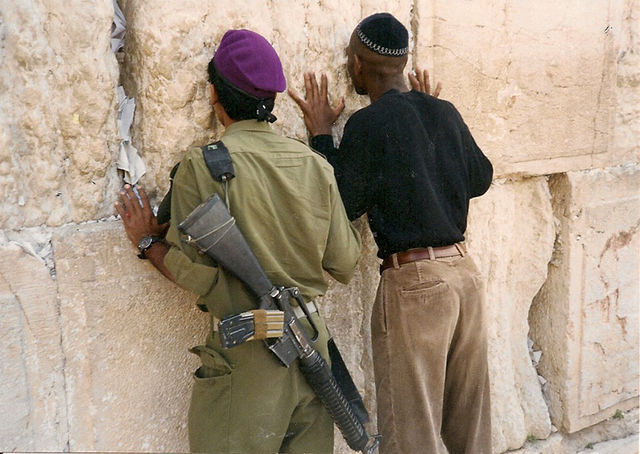Last week, a video emerged. It apparently shows an Israeli soldier shooting a wounded Palestinian terrorist in the head, killing him instantly. Never mind that the footage was supplied by B’Tselem, an organization well known for misrepresenting and distorting facts. Pay no heed to the fact that a few seconds of footage cannot possibly represent the situation that the Israeli soldier faced. The condemnation of the soldier was immediate from both inside and outside of Israel.
A few days later, Israel’s Army Radio published footage that told a different story. In the video, someone slightly out of the frame can be heard saying, “He apparently has an explosive on him, pay attention! Nobody touches him until bomb disposal arrives.” Seconds later, one of the paramedics carrying the soldier — a man who, 20 seconds earlier, had said, “That terrorist is still alive, the dog. Don’t let him get up!”— then cries in panic, “He’s alive. Somebody do something!” Indeed, the lawyers representing the Israeli soldier claim that the soldier was protecting the lives of his comrades, as he believed the terrorist might be wearing explosives.
This new evidence has softened the tones of many. Prime Minister Benjamin Netanyahu, who had originally said that the act didn’t “represent the values of the Israeli Defense Forces,” adopted a more supportive position, stating that “[i]n recent months our soldiers have bravely and resolutely stood up in the face of terrorist attacks and murderers who set out to kill them. The soldiers are forced to make decisions in the field, in real time, under stress and conditions of uncertainty. This is not a simple reality, and I’m sure that the investigation is taking the entirety of these circumstances into account.” Israeli public support for the soldier has also increased substantially, and the soldier is no longer under investigation for murder, but for manslaughter.
Israel and the Jewish people are used to unfair criticism from outside sources. From the rabid anti-Semitism of old to the new ‘anti-Zionism’, imbalanced condemnation and double standards are something we have gotten used to. In a way, they even make us stronger by forcing us to unify. Unfortunately, we have also had instances of divisiveness from the inside throughout our history. The Talmud (Yoma 9b) states that the only reason the Jewish people were exiled from the land of Israel a second time (in the current exile, which began in approximately 70 CE) was because of baseless hatred and the internal divisions that allowed the Romans to break down our defenses and conquer our land. Similarly, condemning soldiers of the IDF based on minimal evidence lowers the morale of the soldiers and increases the morale of terrorists who feel like they can attack with impunity. While internal criticism has been a longstanding tradition of the Jewish people, the jump to condemn without waiting for all the information, perhaps in some misguided attempt to prove our fairness to the outside world, is harmful and not constructive.
The fact that the killing of a despicable, murderous terrorist has triggered a serious investigation, which in all likelihood will result in serious consequences for the soldier in question, is yet another example of the high moral standard to which Israel holds herself. In a regional neighborhood where public squares and children’s sport teams are named after suicide bombers and child killers, Israel’s moral standing holds in stark contrast. This high standard undoubtedly stems from the Jewish people’s tradition of self-criticism. Let’s pray to gain the clarity to distinguish between self-criticism and self-harm.

